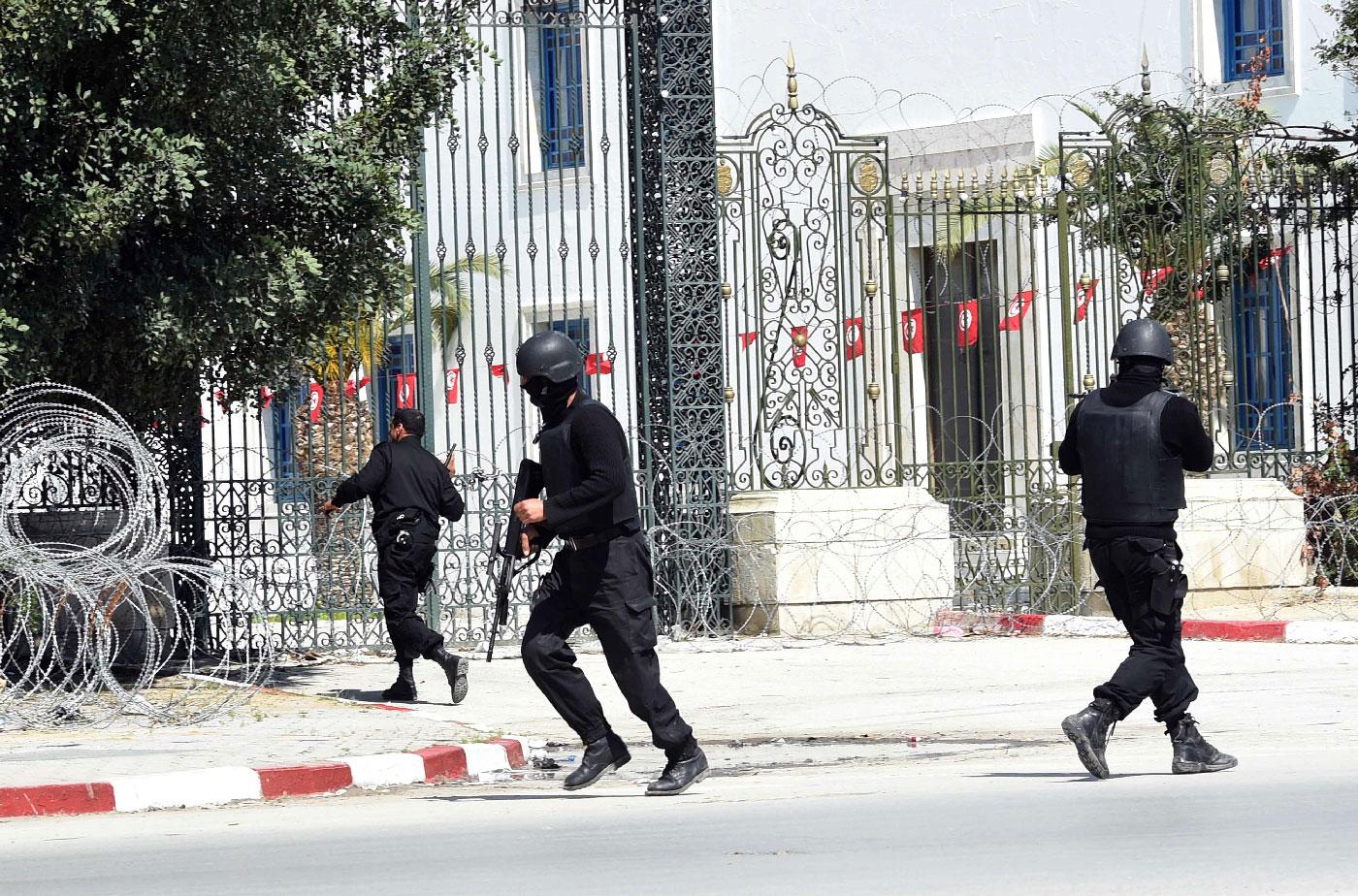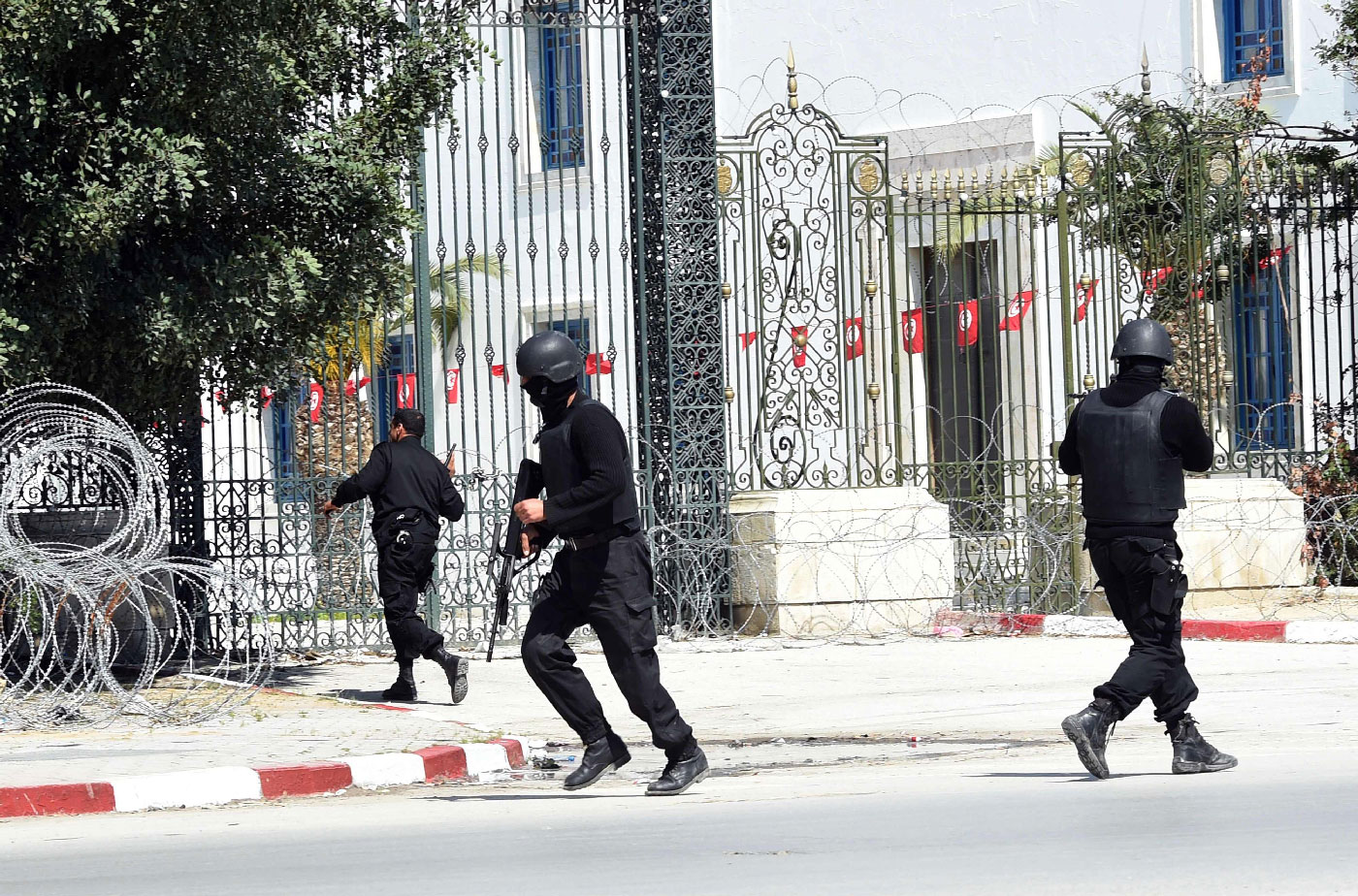Tunisia awaits verdicts on jihadist massacre suspects
TUNIS - A Tunisian court was holding final hearings Friday in trials over jihadist attacks at a museum and on a beach in 2015 that left dozens dead, lawyers said.
Several defence lawyers said the court would likely give verdicts in the two trials overnight Friday to Saturday, although court officials said they may not be made public until after the weekend.
Twenty-one defendants, including two women, appeared in the Tunis courtroom for a hearing on the March 18, 2015 attack at the Bardo museum in Tunis, in which two gunmen killed 21 foreign tourists and a Tunisian security guard.
A verdict was also expected on 44 suspects in a separate trial over a June 26, 2015 shooting rampage in the Sousse tourist resort which killed 38 people, mostly British tourists.
That attack was carried out by student Seifeddine Rezgui, who opened fire on a beach before rampaging into a high-end hotel, where he continued to fire a kalashnikov and throw grenades before being shot dead by police.
Thirty-eight suspects in the trial over the Sousse attack are accused of "terrorist crimes", murder, and "plotting against state security", according to the prosector.
The six remaining suspects are security personnel who stand accused of failing to provide assistance to people in danger during the Sousse attack.
The judge adjourned the trial in the early afternoon, to allow deliberations for verdicts in the two cases.
Victims' family members in France and Belgium watched the hearing via a live video feed, after the three previous hearings had been transmitted only to a French courtroom.
"It was important for us to see, and especially to hear -- to try to understand the role" of each defendant, said one French survivor.
"Arriving at the end of the process will help us to turn the page, even if we can never forget", the septuagenarian said.
'Recognised as victims'
One of the lawyers for the French victims said the live feed had brought some comfort.
"The trial allowed them -- by organising the video conferencing and giving the floor to lawyers chosen by the victims -- to finally be recognised as victims by the Tunisian state," Gerard Chemla said.
But he lamented that the families of those killed had not been compensated.
The court has heard that the two attacks, both claimed by the Islamic State group, were closely linked.
Several defendants pointed to the fugitive Chamseddine Sandi as mastermind of both.
According to Tunisian media, Sandi was killed in a US air strike in neighbouring Libya in February 2016, although there has been no confirmation.
Defendants in the two trials could be sentenced to death if found guilty, although Tunisia has had a freeze on capital punishment since 1991.
Four French nationals, four Italians, three Japanese and two Spaniards were among those killed in the Bardo attack, before the two gunmen themselves, armed with Kalashnikov assault rifles, were shot dead.
Investigations showed one of the gunmen, Yassine Laabidi -- who was born in 1990 and was from a poor district near Tunis -- had amphetamines in his body.
His fellow attacker Jaber Khachnaoui, born in 1994 and from Tunisia's deprived Kasserine region, had travelled to Syria in December 2014 via Libya.
Defendants allege torture
One suspect questioned in court, Tunis labourer Mahmoud Kechouri, said he had helped plan the Bardo attack, including preparing mobile phones for Sandi, a neighbour and longtime friend.
He also admitted preparing maps of the museum and detailing the various planned targets.
Kechouri, 33, said he was driven by a "duty to participate in the emergence of the (IS) caliphate".
Other defendants accused of helping prepare the attack said they had only discussed ideas with friends. Several alleged they were tortured in detention.
"We know that there was a central organiser and two gunmen, but the motives of the accused did not seem to interest the court, and the debates on the facts remained very short," said lawyer Chemla.
The Sousse attack, which killed 30 Britons, is also the subject of proceedings in front of the Royal Courts of Justice in London, which is seeking to establish what happened.
Since a 2011 uprising that toppled dictator Zine El Abidine Ben Ali, jihadist attacks in Tunisia have killed dozens of members of the security forces.
As well as leaving many dead, the Bardo and Sousse attacks dealt a devastating blow to Tunisia's vital tourism sector -- although it has begun to recover.


